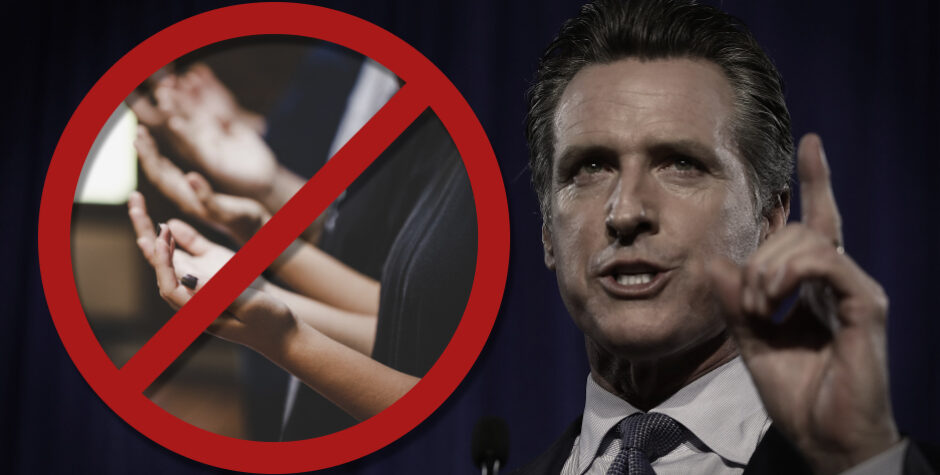ACLJ Files New Brief in Our Worship Ban Lawsuit Detailing Critical New Supreme Court Precedent Protecting Churches – Even in a Pandemic
The ACLJ represents three churches in a lawsuit challenging California’s ban on all singing and chanting at indoor worship services throughout the state. We recently filed a supplemental brief asking the court to prevent California from enforcing the ban while the case moves forward.
In an earlier brief, we explained that the Centers for Disease Control and Prevention (CDC), the World Health Organization (WHO), and many scientific studies confirm that, by implementing protocols such as physical distancing and wearing masks, churches can safely hold indoor services that include singing and chanting. The brief also pointed out how California is treating worship services less favorably than other activities.
Our latest brief focused on a recent Supreme Court decision that held that limiting church services to as few as ten people was unconstitutional. That decision stated that “even in a pandemic, the Constitution cannot be put away and forgotten. The restrictions at issue here . . . strike at the very heart of the First Amendment’s guarantee of religious liberty. Before allowing this to occur, we have a duty to conduct a serious examination of the need for such a drastic measure.”
Our brief explained that “the worship ban is . . . unconstitutional since it is not scientifically necessary, is not narrowly tailored, other less restrictive measures are available, and the state allows non-religious activities of similar or greater risk to proceed.” As the Supreme Court recognized, it is indisputable that churches can operate safely by following commonsense, non-discriminatory safety protocols.
Additionally, our brief pointed out that, although various other restrictions that California imposes are temporary, local, and conditional in nature, based on current conditions in particular regions of the state, “the worship ban is statewide and unconditional; it applies everywhere across the state, at all times, regardless of what local conditions look like, what safety protocols are being utilized, how large the building is, how few people are singing or chanting, and how brief any singing or chanting may be.”
We are hopeful that the court will conclude that houses of worship do not forfeit their constitutional rights during the pandemic, and will prevent California from enforcing its discriminatory, and unnecessary, worship ban.
